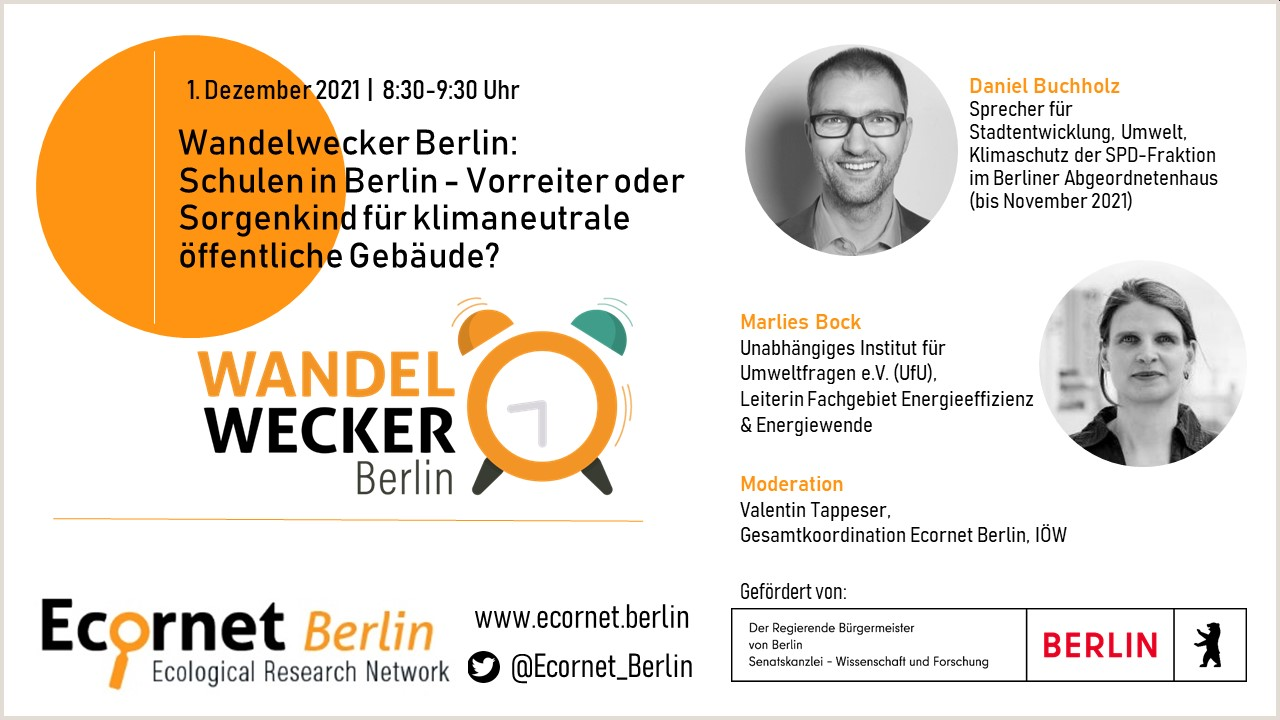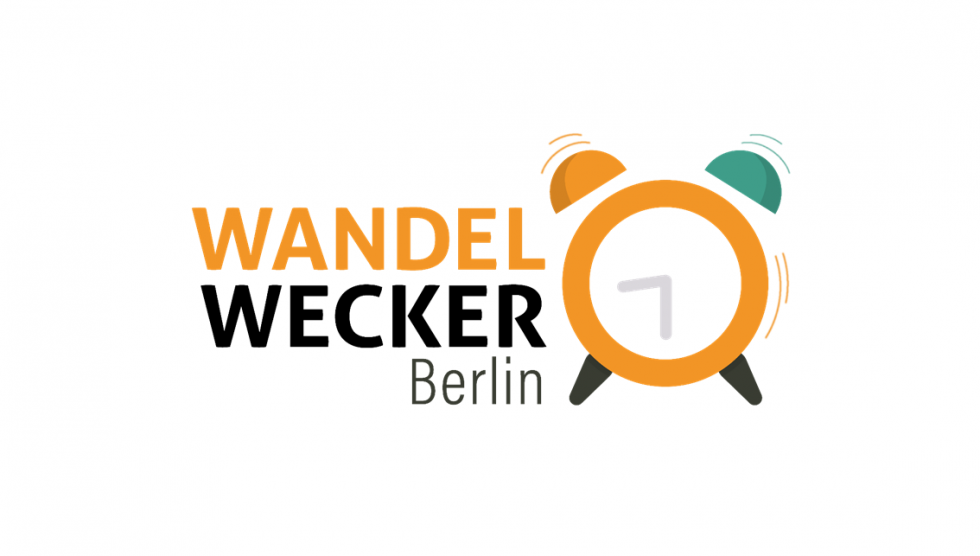Energy Managers and Energy Management at District Level
- Event
- Date
-
- Location
- online
- Speaker
-
Ulrike Villain (energy manager, Berlin)Claudia Alt-Harnack (Berlin Energy Agency)Marlies Bock (UfU)
The Berlin Energy Transition Act (EWG Bln) sets high standards for the city's public buildings stock. With the implementation tool of "renovation roadmaps" and concrete targets for the energy consumption of public buildings, it is more concrete and "strict" than the federal requirements in this area. A central role in implementation, e.g. school refurbishments, is played by the districts (more than 70% of public buildings in the districts are schools). As school authorities, they define the refurbishment needs and are responsible for improving the energy performance of their buildings with regard to climate protection targets.
In order to fulfill this task, the EWG Bln obliges district administrations to both set up an energy management system and appoint energy officers for their property areas. But what does this mean in concrete terms for the implementation of the energy transition in the districts? What are the tasks and what influence do the energy officers have? Where are the pitfalls, and where is there a need for action and improvement? We discussed these questions with our guests in the twelfth edition of Wandelwecker, our morning impulse for a social and ecological metropolis:
- Ulrike Villain has been working as an energy manager in the Facility Management service unit of the Lichtenberg district of Berlin since 1996. As part of the district's energy management, she is responsible for technical and economic as well as non-technical organizational measures, such as monitoring energy consumption or training users in the economical use of energy. Other tasks include the management of the central building database of the state of Berlin.
- Claudia Alt-Harnack has been a project manager at the Berlin Energy Agency for many years. Through the development of numerous energy concepts for larger properties in the non-residential and residential building sector as well as energetic district concepts, she is familiar with many Berlin buildings. Her regular topics are energy efficiency (thermal insulation and building services) and environmentally friendly energy supply. She has also accompanied many energy-saving partnerships in Berlin. Since the end of 2014, she has also moderated the working group of the energy officers of the Berlin districts on behalf of the Senate Department for the Environment.
- Marlies Bock has been a staff member at the Independent Institute for Environmental Issues (UfU) since 2010. She studied industrial engineering with a specialization in environmental engineering and completed further training as a building energy consultant. Since 2016, she has headed the "Energy Efficiency & Energy Transition" department at UfU. In the research network Ecornet Berlin, she leads the project "Heat Turnaround in Non-Residential Buildings". Furthermore, she is involved in various energy saving projects in schools and daycare centers of the UfU. In an already completed project, school buildings in passive house construction were investigated.
Moderation: Valentin Tappeser, Overall Coordination Ecornet Berlin, IÖW





